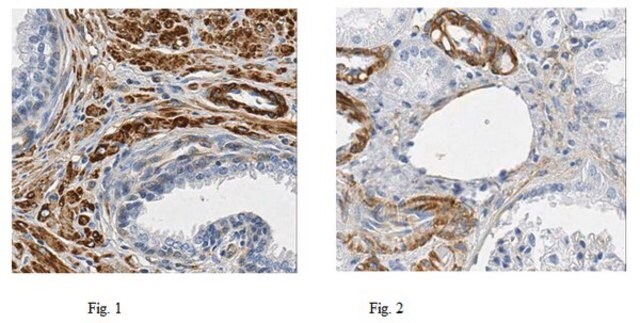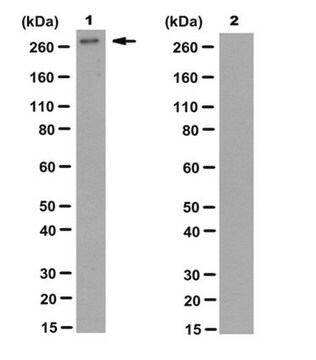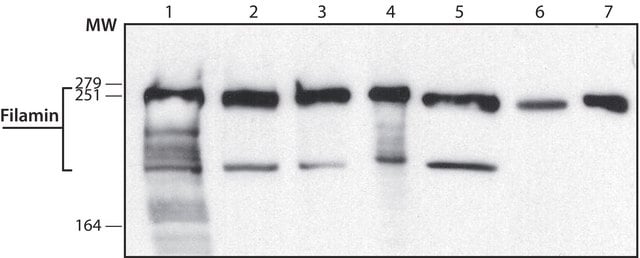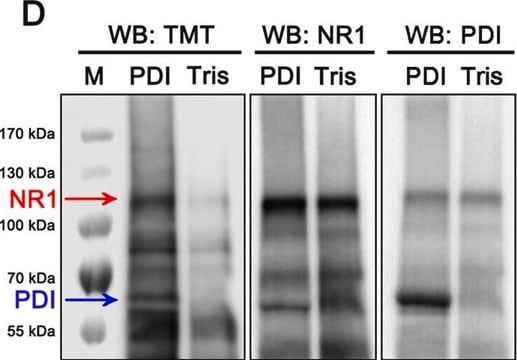MAB1680
Anti-Filamin A Antibody, clone TI10
ascites fluid, clone TI10, Chemicon®
Synonym(s):
Alpha-Filamin, Filamin I, Endothelial Actin-binding Protein, ABP-280, Nonmuscle Filamin
About This Item
Recommended Products
biological source
mouse
Quality Level
antibody form
ascites fluid
antibody product type
primary antibodies
clone
TI10, monoclonal
species reactivity
human, bovine
should not react with
rat, mouse
manufacturer/tradename
Chemicon®
technique(s)
immunohistochemistry (formalin-fixed, paraffin-embedded sections): suitable
immunoprecipitation (IP): suitable
western blot: suitable
isotype
IgG1
NCBI accession no.
UniProt accession no.
shipped in
dry ice
target post-translational modification
unmodified
Gene Information
mouse ... Flna(192176)
Related Categories
General description
Specificity
Immunogen
Application
Immunoprecipitation:Suggested lysis buffer is PBS with 0.5% triton X-100 with proteinase inhibitors (note for full length filamin include calpain inhibitors). 5 microliters of antibody for every 300μL of cell lysate (3-5mg/ml total protein is suggested). Incubation is 4 hours RT or overnight 4C; Protein A/G agarose beads or rabbit anti-mouse secondary capture antibody is recommended for best recovery. 4-10% acrylamide gels are recommended for full length filamin or the 80kDa fragement visualization.
Immunofluorescence: 1:50 to 1:200 using standard ABC technique. Suitable for staining of paraffin embedded sections (lower dilutions). High temperature citrate buffer antigen retrieval technique recommended.
Optimal working dilutions must be determined by end user.
Cell Structure
Cytoskeleton
Linkage
Physical form
Storage and Stability
Analysis Note
Positive control tisse: skin.
Legal Information
Disclaimer
Not finding the right product?
Try our Product Selector Tool.
recommended
Storage Class Code
10 - Combustible liquids
WGK
WGK 1
Flash Point(F)
Not applicable
Flash Point(C)
Not applicable
Certificates of Analysis (COA)
Search for Certificates of Analysis (COA) by entering the products Lot/Batch Number. Lot and Batch Numbers can be found on a product’s label following the words ‘Lot’ or ‘Batch’.
Already Own This Product?
Find documentation for the products that you have recently purchased in the Document Library.
Our team of scientists has experience in all areas of research including Life Science, Material Science, Chemical Synthesis, Chromatography, Analytical and many others.
Contact Technical Service







